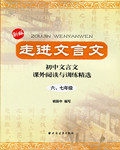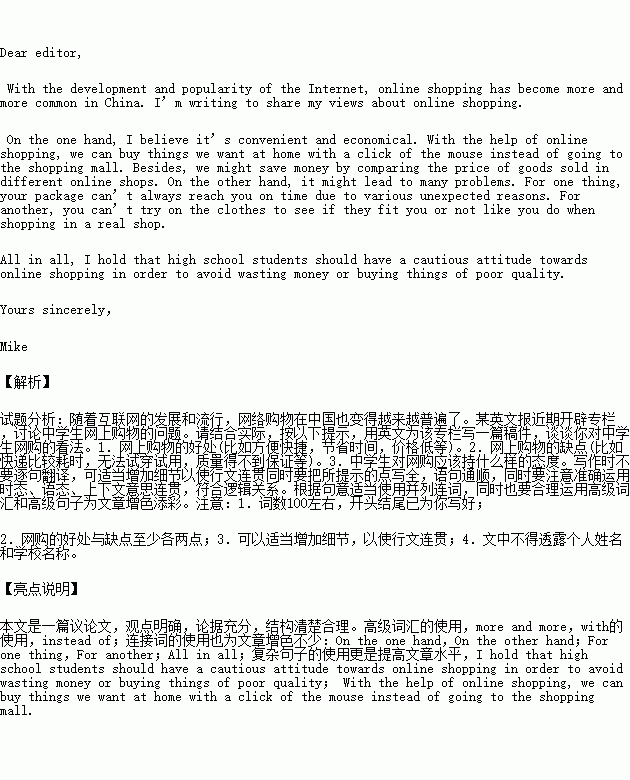��Ŀ����
���Ż������ķ�չ�����У����繺�����й�Ҳ���Խ��Խ�ձ��ˡ�ijӢ�ı����ڿ���ר����������ѧ�����Ϲ�������⡣����ʵ�ʣ���������ʾ����Ӣ��Ϊ��ר��дһƪ�����̸̸�����ѧ�������Ŀ�����
1�����Ϲ���ĺô�(���緽���ݣ���ʡʱ�䣬�۸�͵�)��
2�����Ϲ����ȱ��(�����ݱȽϺ�ʱ�����Դ����ã������ò�����֤��)��
3����ѧ��������Ӧ�ó�ʲô����̬�ȡ�
ע�⣺
1������100���ң���ͷ��β��Ϊ��д�ã�
2�������ĺô���ȱ�����ٸ����㣻
3�������ʵ�����ϸ�ڣ���ʹ�������
4�����в���¶����������ѧУ���ơ�
Dear Editor��
With the development and popularity of the Internet, online shopping has become more and more common in China.
____________________________________________________________________________________________
____________________________________________________________________________________________
____________________________________________________________________________________________
____________________________________________________________________________________________
____________________________________________________________________________________________
___________________________________________________
Yours sincerely��
Mike
 �ִʾ�ƪ��ͬ�����Ĵ��ϵ�д�
�ִʾ�ƪ��ͬ�����Ĵ��ϵ�д� �߽�������ϵ�д�
�߽�������ϵ�д�
